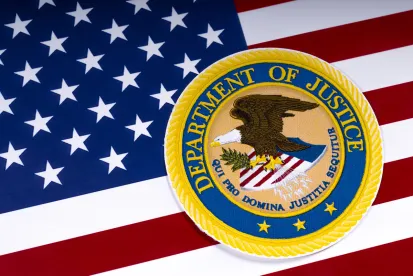On Wednesday, February 22, 2023, the Department of Justice (“DOJ”) released a new nationwide voluntary self-disclosure policy for corporate criminal enforcement. The policy codifies previous corporate enforcement guidance issued by DOJ in September 2022. Under the new policy, effective immediately, companies that timely self-report misconduct and fully cooperate with the subsequent investigations will receive “significant benefits” such as reduced criminal and financial penalties or a nonprosecution agreement. The DOJ presented the policy as one that will allow them to better police corporate conduct and continue to focus on the prosecution of involved individuals. In addition, the DOJ may still decide to seek a guilty plea where there are certain aggravating factors.
Deputy Attorney General Lisa Monaco has previously stated regarding self-disclosure that “speed is of the essence.” The new policy requires disclosure to be timely, and it must occur before an imminent threat of misconduct is revealed, such as by a whistleblower, the misconduct becomes widely known by the public or government officials, or the initiation of a government investigation. The company bears the burden of establishing that the disclosure is timely. Where the disclosure is untimely, or the government otherwise discovers the misconduct, companies will not be guaranteed the same benefits even with outstanding cooperation with the investigation on the back end.
In September of last year, the DOJ released the “Monaco Memo” following input from the private sector and defense bar, requiring that all Department policies and procedures ensure the opportunity to self-disclose in adherence with the core principles of voluntary self-disclosure. These core principles included that the Department will not seek a guilty plea where the corporation voluntarily self-disclosed, provided full cooperation and timely remediated the criminal conduct. In addition, according to the guidance, the Department would not require the imposition of an independent compliance monitor for a cooperating corporation that voluntarily self-discloses the relevant conduct if, at the time of resolution, it also demonstrates that it has implemented and tested an effective compliance program. The final decision about the imposition of a monitor would continue to be made on a case-by-case basis at the Department’s sole discretion. The policies included guidance regarding circumstances that constitute aggravating factors, where the government may still seek to resolve the misconduct with a guilty plea, such as conduct pervasive throughout the company, involving current executive members of management, or posing a threat to national security or the environment. Now, the national policy will apply to all corporate criminal enforcement actions.
In light of these changes, all organizations should review company bylaws, articles and compensation policies to determine the level of existing authority and flexibility to take full advantage of opportunities for cooperation. Prosecutors are now required to assess companies’ compliance plans when assessing a case. Compliance programs should be active, and stress tested before issues of whether a voluntary disclosure to the government is appropriate or enforcement may arise. Where there has been previous enforcement action against a company, particularly within the last ten years, the company should also ensure that sufficient efforts have been taken to resolve the “root cause” of the prior misconduct, particularly within the management structures of the prior enforcement actions or nonprosecution or deferred prosecution agreements. The Department considers repeated misconduct to indicate that the entity operates without an appropriate compliance culture or institutional safeguards.






 />i
/>i

